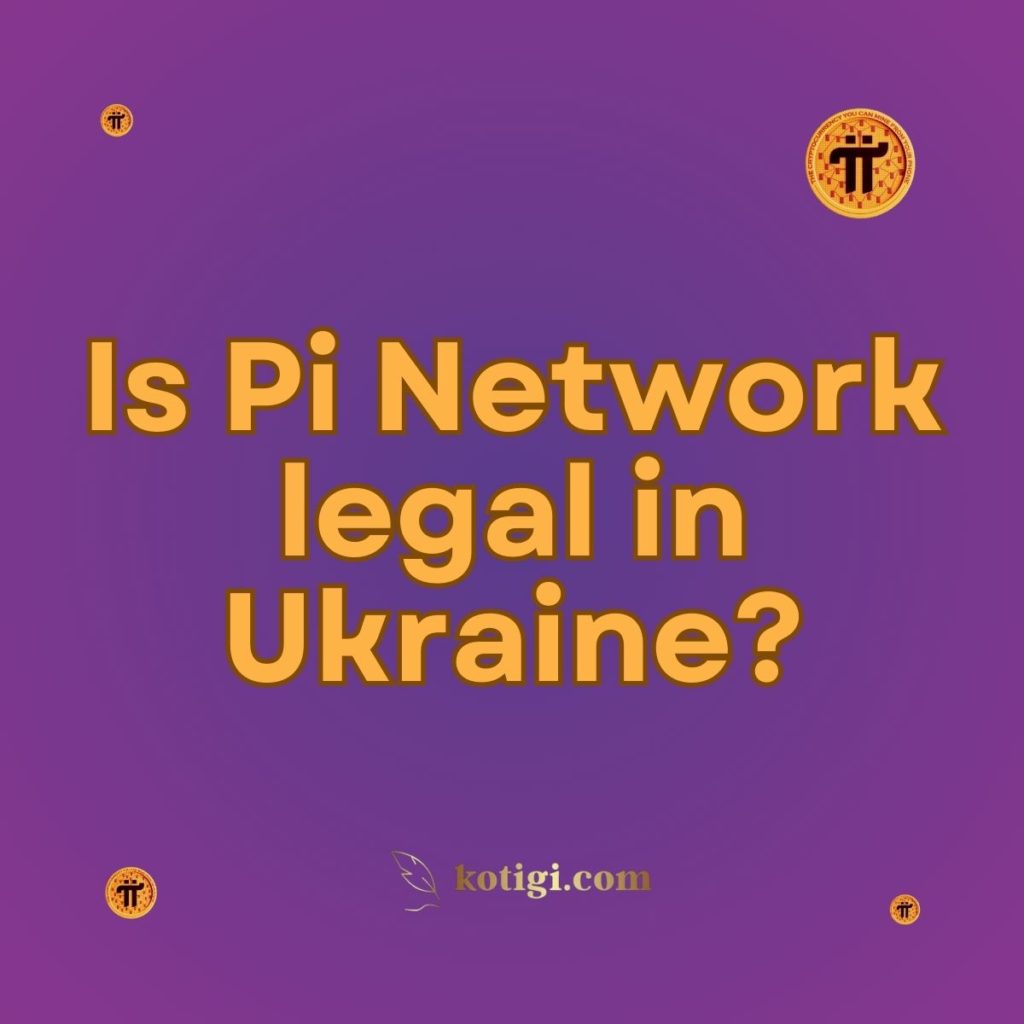
Is Pi Network legal in Ukraine?
Pi Network’s legal status in Ukraine is not clearly defined yet, as the country is still developing its regulatory framework around cryptocurrencies. However, Ukraine is progressively embracing the digital currency space, which provides insights into how Pi Network might be treated.
Cryptocurrency Regulations in Ukraine
Ukraine has been working to establish a more crypto-friendly regulatory environment. In 2021, Ukraine passed the Law on Virtual Assets, which provided a legal framework for the ownership and use of cryptocurrencies. Under this law, cryptocurrencies are recognized as virtual assets, and businesses that operate in the digital asset space are required to register with the government and follow specific guidelines.
The law aims to regulate virtual assets like Bitcoin, Ethereum, and other digital currencies, ensuring they are not used for illicit activities. The Ukrainian government has been pushing to make the country a hub for cryptocurrency innovation by encouraging businesses to use blockchain technology and adopt digital currencies.
While cryptocurrencies are legal and can be traded, the National Bank of Ukraine (NBU) does not consider them as legal tender, meaning they cannot be used in place of the Ukrainian hryvnia for official payments. The government is also planning to introduce a Central Bank Digital Currency (CBDC) called the e-hryvnia.
Where Pi Network Stands in Ukraine
As Pi Network is still in its testnet phase and has not launched its mainnet, the Pi coins mined by users currently have no real value and are not tradable on exchanges. Since Pi is not yet a fully developed cryptocurrency, it does not fall under the same regulations that govern Bitcoin, Ethereum, or other virtual assets.
There have been no specific statements or regulations targeting Pi Network from the Ukrainian government or the NBU. Users in Ukraine can mine Pi on the mobile app without facing legal repercussions, as it is considered more of a social experiment or digital network at this stage rather than a full-fledged cryptocurrency.
Potential Future Legal Considerations
Once Pi Network launches its mainnet and Pi coins become tradable, they may fall under the Law on Virtual Assets, which means Pi Network may have to comply with Ukraine’s crypto regulations. The Pi coins would likely be subject to the same scrutiny as other digital assets, requiring Pi Network to ensure compliance with anti-money laundering (AML) and Know Your Customer (KYC) regulations.
Given Ukraine’s progressive stance on cryptocurrencies, it is likely that Pi Network would be treated similarly to other digital currencies, with appropriate regulations applied to ensure transparency and consumer protection.
No Official Ban on Pi Network
At this point, there is no official ban on Pi Network in Ukraine. The platform operates freely, and users can participate in mining activities without any regulatory challenges. Pi Network’s legal status remains flexible due to the fact that it is not yet a tradeable asset.
Conclusion
Pi Network is currently legal in Ukraine, with no explicit regulations or restrictions placed on its use. Ukrainian users can participate in mining Pi coins without concern for legal consequences. However, once Pi Network transitions to its mainnet and its coins become tradable, it will likely fall under Ukraine’s regulatory framework for virtual assets. Users should keep an eye on future developments in Ukrainian cryptocurrency laws to ensure continued compliance once Pi becomes a fully operational cryptocurrency.




